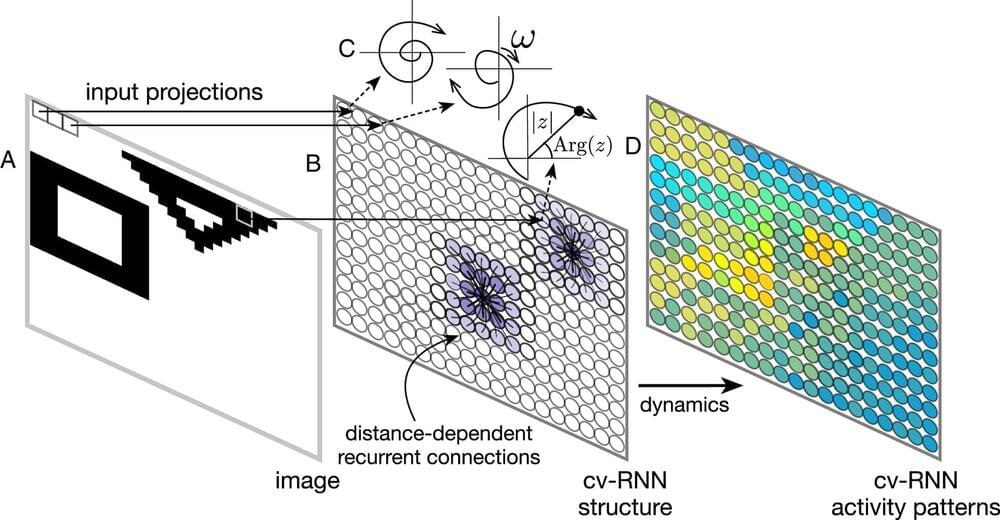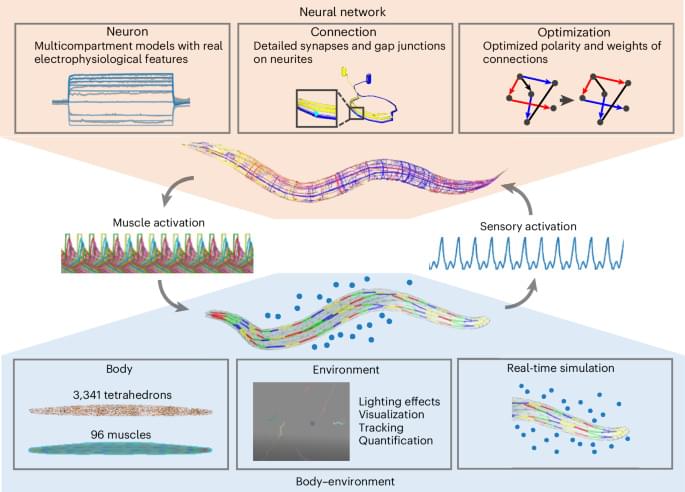Surging emissions, battlefield algorithms, Trump’s chip war, and other predictions.



Quantum computers may soon dramatically enhance our ability to solve problems modeled by nonreversible Markov chains, according to a study published on the pre-print server arXiv.
The researchers from Qubit Pharmaceuticals and Sorbonne University, demonstrated that quantum algorithms could achieve exponential speedups in sampling from such chains, with the potential to surpass the capabilities of classical methods. These advances — if fully realized — have a range of implications for fields like drug discovery, machine learning and financial modeling.
Markov chains are mathematical frameworks used to model systems that transition between various states, such as stock prices or molecules in motion. Each transition is governed by a set of probabilities, which defines how likely the system is to move from one state to another. Reversible Markov chains — where the probability of moving from, let’s call them, state A to state B equals the probability of moving from B to A — have traditionally been the focus of computational techniques. However, many real-world systems are nonreversible, meaning their transitions are biased in one direction, as seen in certain biological and chemical processes.

Western researchers have developed a novel technique using math to understand exactly how neural networks make decisions—a widely recognized but poorly understood process in the field of machine learning.
Many of today’s technologies, from digital assistants like Siri and ChatGPT to medical imaging and self-driving cars, are powered by machine learning. However, the neural networks —computer models inspired by the human brain —behind these machine learning systems have been difficult to understand, sometimes earning them the nickname “black boxes” among researchers.
“We create neural networks that can perform specific tasks, while also allowing us to solve the equations that govern the networks’ activity,” said Lyle Muller, mathematics professor and director of Western’s Fields Lab for Network Science, part of the newly created Fields-Western Collaboration Centre. “This mathematical solution lets us ‘open the black box’ to understand precisely how the network does what it does.”
In February 2016, scientists working for the Laser Interferometer Gravitational-Wave Observatory (LIGO) made history by announcing the first-ever detection of gravitational waves (GW). These waves, predicted by Einstein’s Theory of General Relativity, are created when massive objects collide (neutron stars or black holes), causing ripples in spacetime that can be detected millions or billions of light years away. Since their discovery, astrophysicists have been finding applications for GW astronomy, which include probing the interiors of neutron stars.
For instance, scientists believe that probing the continuous gravitational wave (CW) emissions from neutron stars will reveal data on their internal structure and equation of state and can provide tests of General Relativity. In a recent study, members of the LIGO-Virgo-KAGRA (LVK) Collaboration conducted a search for CWs from 45 known pulsars. While their results showed no signs of CWs emanating from their sample of pulsars, their work does establish upper and lower limits on the signal amplitude, potentially aiding future searches.
The LVK Collaboration is an international consortium of scientists from hundreds of universities and institutes worldwide. This collaboration combines data from the Laser Interferometer Gravitational-Wave Observatory’s (LIGO) twin observatories, the Virgo Observatory, and the Kamioka Gravitational Wave Detector (KAGRA). The preprint of the paper, “Search for continuous gravitational waves from known pulsars in the first part of the fourth LIGO-Virgo-KAGRA observing run,” recently appeared online.

Our neural network model of C. elegans contained 136 neurons that participated in sensory and locomotion functions, as indicated by published studies24,27,28,29,30,31. To construct this model, we first collected the necessary data including neural morphology, ion channel models, electrophysiology of single neurons, connectome, connection models and network activities (Fig. 2a). Next, we constructed the individual neuron models and their connections (Fig. 2b). At this stage, the biophysically detailed model was only structurally accurate (Fig. 2c), without network-level realistic dynamics. Finally, we optimized the weights and polarities of the connections to obtain a model that reflected network-level realistic dynamics (Fig. 2d). An overview of the model construction is shown in Fig. 2.
To achieve a high level of biophysical and morphological realism in our model, we used multicompartment models to represent individual neurons. The morphologies of neuron models were constructed on the basis of published morphological data9,32. Soma and neurite sections were further divided into several segments, where each segment was less than 2 μm in length. We integrated 14 established classes of ion channels (Supplementary Tables 1 and 2)33 in neuron models and tuned the passive parameters and ion channel conductance densities for each neuron model using an optimization algorithm34. This tuning was done to accurately reproduce the electrophysiological recordings obtained from patch-clamp experiments35,36,37,38 at the single-neuron level. Based on the few available electrophysiological data, we digitally reconstructed models of five representative neurons: AWC, AIY, AVA, RIM and VD5.

Modern AI systems have fulfilled Turing’s vision of machines that learn and converse like humans, but challenges remain. A new paper highlights concerns about energy consumption and societal inequality while calling for more robust AI testing to ensure ethical and sustainable progress.
A perspective published on November 13 in Intelligent Computing, a Science Partner Journal, argues that modern artificial intelligence.
Artificial Intelligence (AI) is a branch of computer science focused on creating systems that can perform tasks typically requiring human intelligence. These tasks include understanding natural language, recognizing patterns, solving problems, and learning from experience. AI technologies use algorithms and massive amounts of data to train models that can make decisions, automate processes, and improve over time through machine learning. The applications of AI are diverse, impacting fields such as healthcare, finance, automotive, and entertainment, fundamentally changing the way we interact with technology.

A Stanford geophysicist and lawyer team up to use big data for water quality monitoring and governance.

The intricate relationship between quantum mechanics and classical physics has long puzzled scientists. Quantum mechanics operates in a bizarre world where particles can exist in multiple states simultaneously, a concept known as superposition. However, this principle appears to break down in the macroscopic realm.
Planets, stars, and even the universe itself don’t exhibit such superpositions, creating a significant challenge in understanding how the universe transitions from quantum to classical behavior.
At the heart of this enigma is the question: how does the universe, if fundamentally quantum, adhere to classical laws like general relativity? This puzzle has led to groundbreaking work by researchers such as Matteo Carlesso and his colleagues at the University of Trieste.
Dive into the mesmerizing world of quantum mechanics and uncover the secrets of the quantum vacuum—a concept that challenges everything we thought we knew about empty space. This video explores the dynamic, energy-filled realm of the quantum vacuum, where virtual particles pop in and out of existence and Zero Point Energy offers tantalizing possibilities for clean, limitless power.
Learn about the Casimir Effect, a fascinating phenomenon where quantum fluctuations create forces between metal plates, and discover how these principles could revolutionize fields like nanotechnology, energy production, and even space exploration. From the Heisenberg Uncertainty Principle to the Reverse Casimir Effect, this journey into quantum mechanics highlights the incredible potential of harnessing Zero Point Energy for a sustainable future.
Whether you’re a science enthusiast, a technology visionary, or just curious about the universe’s mysteries, this video will inspire you with the groundbreaking implications of the quantum vacuum and Zero Point Energy.
#QuantumVacuum #ZeroPointEnergy #QuantumMechanics #VirtualParticles #CasimirEffect #ReverseCasimirEffect #QuantumEnergy #CleanEnergy #LimitlessEnergy #QuantumFluctuations #QuantumPhysics #SustainableEnergy #HendrikCasimir #HeisenbergUncertainty #Nanotechnology #EnergyBreakthroughs #QuantumScience #QuantumFieldTheory #FuturisticEnergy #QuantumComputing #mcgintyequation